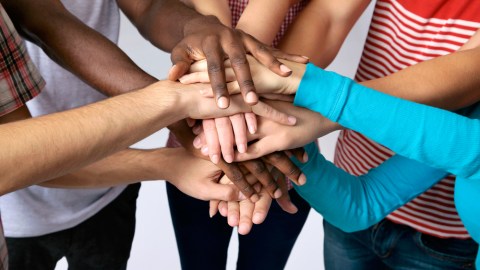How May I Help You? The Genius of the Reciprocity Ring

There’s a very powerful exercise created by Wayne Baker at the University of Michigan and his wife Cheryl Baker at Humax Networks. What they do is they assume that there are actually a lot of people who would enjoy helping others but they don’t know what other people need. And at the same time there are other people who have requests that they would love to make but they don’t know where to go.
The reciprocity ring is a solution to both of these problems. What you often do is bring a group of people together – it might be as few as eight or as many as 30. And you ask each person to make a request. It has to be a meaningful request. It could be personal or professional. And ideally it’s one that you couldn’t fulfill yourself even though it’s important to you. Everybody else in the group then is challenged to use their knowledge and their networks to try to figure out if they can make the request happen.
I’ve seen some very diverse requests over the years. I run the reciprocity ring frequently with groups of employees in organizations as well as with students in my own classroom. I’ve had people ask to meet their favorite celebrity, to see a sporting event, to find a job. But also there are things like “I want to see a Bengal tiger in the wild.” Or, “I have a friend who can’t find clothes that fit because her growth was stunted due to a health problem and can anybody help me find the right contact in the garment industry to work with her.” And it’s really remarkable to see how many people underestimate the access in these networks in which, in my experience, about 80 percent of requests get a meaningful lead that the person couldn’t have gotten otherwise.
I think it’s a great opportunity for people to number one, figure out how they can act like givers because you actually get to see all these needs and requests and figure out how you can help. And number two, also realize that actually giving can be more efficient than matching. If you are a matcher you are typically only able to reach out to the people that you have exchanged a lot of help with in the past. Whereas, if you have this structure where everyone is actually willing to help everyone else in the group, you can then go to the person who actually is best suited to help you as opposed to the person you have a strong relationship with.





